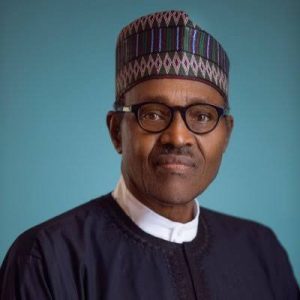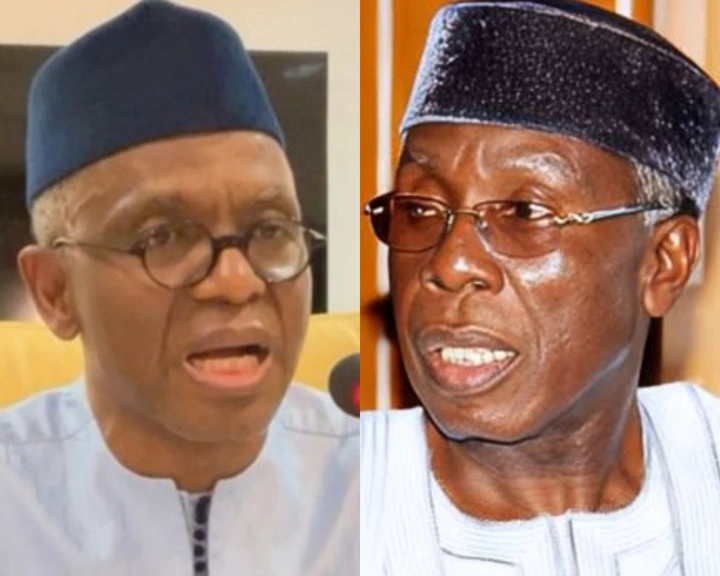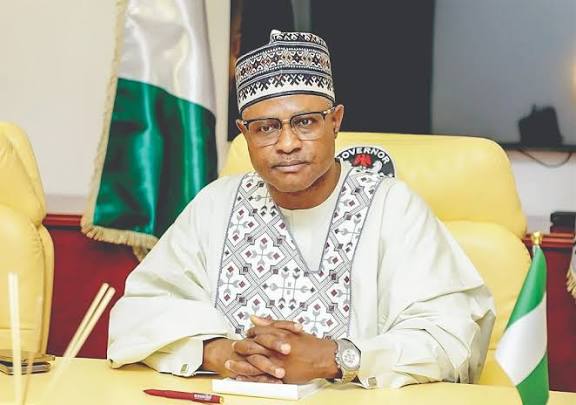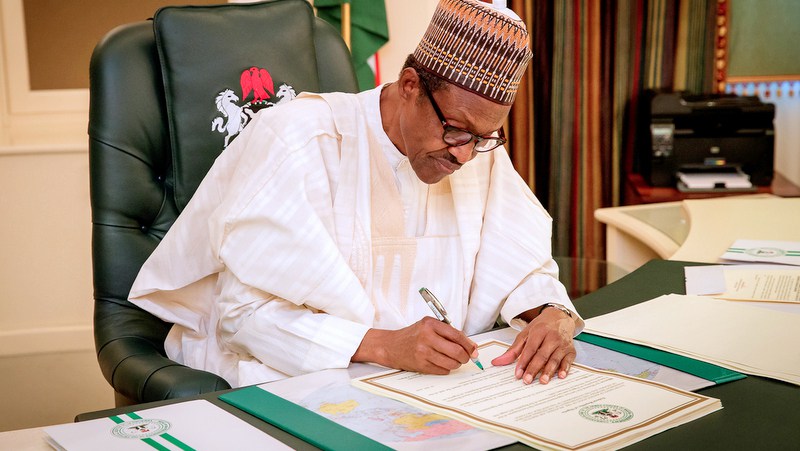Featured
President Buhari focused on nation building and unity of Nigeria, By Femi Adesina
By FEMI ADESINA
To state that we live in challenging times is perhaps an understatement and does very little justice in accurately capturing our current realities. Those realities include a world faced with a pandemic the scale of which hasn’t been seen in 100 years. The crisis has crippled economies, destroyed global supply chains and obliterated once productive and viable sectors of the economy.

Our dear nation has not been spared in this difficult period and, indeed, has felt the impact of the global crisis. But as a responsive government, the Buhari administration has within limited resources designed responses that are targeted at mitigating the full impact of this scourge.
The Economic Sustainability Plan has earmarked N2.7 trillion in spending to create and sustain jobs and livelihoods for those who have been impacted the most by this crisis.
Despite battling with low public revenues, and the hydra-headed monster of low oil price and a reduced production quota from OPEC, this administration remains committed to honouring the promises made to the Nigerian people across the key areas of Security, Economy and fighting Corruption.
At the just concluded Inter-Ministerial Retreat, the entire Government apparatus was gathered under one roof to review performance over the last year, with a singular objective of identifying how to improve in those areas where successes fell short of target, and how to replicate those key elements that led to success in others.
A frank conversation took place between the participants and independent assessors. Amongst the critical themes that emerged from the two-day session was the need to improve focus, coordination and collaboration amongst Ministries, Departments and Agencies, and the importance of rigorous execution, monitoring and evaluation of projects and activities against set targets.
Regarding domestic policy actions, the last week has seen critical decisions around the economy being taken. These are decisions that for many years previous governments have shied away from, and as a result cost our country several billions of dollars.
This was funding that could easily have been deployed elsewhere in support of millions of our citizens, as opposed to subsidizing a small percentage of our population. If we continued along this path it would portend a very dark and uncertain future for our country.
As most crisis managers state, “Never allow a crisis go to waste.” Such periods present an opportunity to take stock and make difficult decisions. These domestic policy decisions were by no means easy, but are in the best interest of our nation.
The impact of this decision is to have an improved allocation of very scarce resources, create an opportunity for private sector investment to return to sectors where government intervention had created distortions in various ways. The return of the private sector promotes job creation and provides for the entrepreneurial genius that is embedded in Nigerians.
Leadership is about making tough and difficult decisions and not a popularity contest. President Buhari’s commitment to doing the right things in the best interest of our country should never be in doubt.
In the regional sphere, Mr. President has not shirked from his responsibilities of promoting alongside other sub-regional leaders the principle of non-acceptability of change of government other than by constitutional means, and the values of democracy in places like Mali and ensuring that peace and security are maintained in neighbouring countries as they have a direct impact on our own security and territorial integrity.
Mr. President is also fully aware that there are historic fissures that exist in various locations across the country, and has advocated for dialogue between key parties who are direct stakeholders in ensuring peace.
An example is the recent peace dialogue that took place in Kaduna between warring groups that have been at each other’s neck for quite some time. Their efforts to sit across the table and dialogue on how best they can resolve their differences, is the pathway that needs to be charted in addressing our internal issues. Such peace moves, which would be deepened and extended to other parts of the country, are critical to our continued existence as a people and as a nation.
However, what is sad, and most reprehensible is the conduct of those who should know better and should be seen to be playing a leading role in bridging and or mediating these fissures that we have lived with, who now invest their time in trying to deepen those fault lines and stoking ethnic embers in very subtle and manipulative ways that eventually find their way to the public sphere.
Given the plethora of challenges that confront our nation, Mr. President’s attention is on how our growing youthful population can compete in a world that has no boundaries and barriers, given our very fertile land. Focus is on how we can best improve agricultural practices and increase yields per hectare, so our farmers benefit from their sweat and honest labour.
Also under attention is how connectivity between markets and people can be improved so that commerce and movement of persons can thrive and flourish.
How do we deepen technology penetration to ensure that we are not left behind in the digital race? These are a few amongst the things that occupy the thoughts of the President.
All statesmen will be judged by their records long after they exit the scene, and President Buhari is focused on deepening Nigeria’s unity and laying a solid foundation for the transformation of our country so that future leadership can build on.
Therefore, he will not be deterred by those whose singular objective, carried out through a veil of deception, is a cocktail of hate-inspired messaging and vitriol intended to distract and undermine our march towards prosperous nation building.
* Adesina is Special Adviser to the President, Media and Publicity.
Featured
El-Rufai Prays for Late Audu Ogbeh, Says He Deserves Al-Jannah Firdaus Despite Being Catholic

By: Fabian Apechihin
Former Kaduna State Governor Nasir El-Rufai has described the late Chief Audu Ogbeh as a selfless leader who dedicated his life to the service of others, praying that God grants him eternal rest in paradise.
Speaking in a video shared by Symfoni TV, El-Rufai acknowledged that Ogbeh was a Catholic, not a Muslim, but said he would continue to pray that Allah admits him into Al-Jannah Firdaus because “he is deserving of it.”
Holding back tears, the former governor praised Ogbeh as “a good man” who touched many lives and left behind a legacy of service. He also recalled Ogbeh’s achievements as Minister of Agriculture, noting that under his leadership Nigeria ended its heavy reliance on rice imports.
“Before his reforms, Nigeria was spending five million dollars monthly on rice imports, but that figure dropped to zero during his tenure,” El-Rufai said.
He prayed for comfort for Ogbeh’s family and loved ones, adding: “I will keep praying for Audu Ogbeh, a Catholic and not a Muslim, so that Allah would grant him entrance to Al-Jannah Firdaus. What a great man he was.”
Do you want me to make this more emotional and tribute-like (focusing on Ogbeh’s character and legacy), or keep it strictly factual and political?
Featured
Facilitation

I join millions of Nigerians in celebrating a man whose life continues to illuminate the path of honour, courage, and patriotism: Colonel Abubakar Dangiwa Umar (Rtd.), on the occasion of his 76th birthday. It is not only a moment of personal reflection but a national milestone, as we honour a soldier, statesman, pro-democracy icon, and moral conscience of our nation.
Colonel Umar stands tall among Nigeria’s most principled voices; his name evoking an unwavering commitment to justice, equity, and democratic ideals. In the tumultuous days following the annulment of the historic June 12, 1993 presidential election, when many chose silence or self-preservation, he chose the difficult path of truth. He risked his career, comfort, and personal safety by speaking out in defence of Chief MKO Abiola’s stolen mandate, despite being a senior member of the ruling military council. It was a singular act of bravery that not only inspired a generation but redefined the meaning of loyalty to country over convenience.
As a young civil rights activist in those difficult days, I found in Colonel Umar not just a role model, but a moral compass. He demonstrated to us that true leadership is not merely about wielding power, but standing firm in defence of what is right, even at great personal cost. His resignation from the Nigerian Army at a time when he stood poised for further elevation is perhaps one of the most courageous acts in our political history.
As Governor of Kaduna State today, I draw deep inspiration from his sterling example of inclusive leadership. His tenure as military governor of this great state remains a reference point for fairness, balance, and peacebuilding. In a deeply diverse and, at times, fractured society, he governed with wisdom, compassion, and an unshakeable belief in our shared humanity.
Colonel Umar’s transcendence of ethnic and religious divides has never required a denial of his own identity. Rather, he has drawn strength from it: his noble Fulani lineage, his deep Islamic faith, and his enduring belief that justice is the foundation of peace.
I am proud to stand among those who celebrate him, not only for his past heroism, but for his continued voice of conscience in our national life. I also warmly commend President Bola Ahmed Tinubu for honouring him with the Commander of the Federal Republic (CFR), a richly deserved recognition.
Happy 76th birthday, our highly revered Colonel Dangiwa Umar. May your legacy continue to inspire generations to come.
Senator Uba Sani, CON
Governor, Kaduna State
Featured
Natasha; Defamations Charges On Akpabio, Yahaya Bello Suffers Adjournment

By Hassan Taiye
For the second time in 24 hours, the trial of the suspended Kogi Central Senator, Natasha Apoti-Uduaghan for allegedly defaming the President of the Senate, Godswill Akpabio and former governor of Kogi state, Yahaya Adosa Bello suffered an adjournment.
The trial scheduled to kick-start on Tuesday was put off by the High Court of the Federal Capital Territory in Abuja following objections raised by the suspended senator against the competence of the charges.
Natasha predicated her objections on the alleged abuse of prosecutorial powers by the Office of the Attorney General of the Federation AGF by filing charges against her at the Federal High Court and the High Court of the Federal Capital Territory on the same subject matter and same complaints.
When the matter was called, David Kaswe, a lawyer from the Ministry of Justice informed the court of his readiness to open the case against the defendant.
He claimed to have his first witness, a Superintendent of Police, Abdulhafeez Garba in court to testify against the senator.
He requested for permission of the court to call the witness into the witness box.
The request was however opposed by lead counsel to the defendant Mr Ehighioge West-Idahosa SAN on the ground that his client has filed a motion on notice, challenging the competence of the charges and the jurisdiction of the court.
West-Idahosa said that the motion has been served on the Attorney General of the Federation AGF as required by law but that the AGF had not responded.
In the drama that ensued, the federal government lawyer who announced appearance for the AGF Office argued that he ought to have been served personally or be informed on phone on the filing of the motion and requested that Natasha’s claim be rejected.
However, the trial Judge, Justice Chizoba Orji found in the case file that the AGF office was served with the motion but had not responded as required by law.
At this point, the federal government lawyer admitted that the AGF had been out of the country and as such, has not made the motion available to him.
After taking arguments for and against adjournment, Justice Chizoba Orji held that the proper thing was to shift trial to enable AGF respond to the motion in the interest of fair hearing.
The Judge subsequently fixed October 27 for Natasha’s motion to be heard along with the response of the AGF.
About two thousand sympathizers escorted the senator to court thereby giving security agents hectic job to control crowd and ward off security breaches.
Natasha’ was on Thursday, June 19, 2025 docked at the High Court of the Federal Capital Territory in Abuja for allegedly defaming the President of the Senate, Godswill Akpabio and former governor of Kogi state, Yahaya Adosa Bello.
She was put on trial by the Office of the Attorney General of the Federation and Minister of Justice (AGF) on three-count criminal charges bordering on harmful imputations during a television interview.
When the charges were read, she pleaded not guilty to all of them.
Justice Chizoba admitted her to bail in the sum of N50 million and one surety in the like sum in the charge marked CR/297/25 filed on May 15, 2025.
The judge had held that the surety must be an owner of landed property within the jurisdiction of the court.
Natasha was, in count one, accused of making harmful imputation which she knew would harm the reputation of the Senate President, Senator Godswill Akpabio, by claiming he plotted, with former Kogi governor, Yahaya Bello, to kill her.
In count two, she was accused of making a similar harmful imputation knowing that it will harm the reputation of ex-governor Yahaya Bello.
In count three, she was accused of making another imputation, which she knew would harm the reputation of Akpabio by associating him with the death of one Miss Imoren Iniobong.
Meanwhile, the National Assembly has unsealed the office of Senator Natasha, granting her access to the the National Assembly six months after her suspension.
-

 Uncategorized5 years ago
Uncategorized5 years agoFG, states urged to harness flooding for ranching, others with technology – Agbaje
-

 Headlines10 years ago
Headlines10 years agoBreaking: EFCC seals Borno House of Assembly, as Hon members take to their heels
-

 News12 years ago
News12 years agoNigeria Security Operatives Stage Manhunt For Homosexual Perpetrator
-

 News9 years ago
News9 years agoHow 21-year-old Girl fled community over accusation of lesbianism
-

 News10 years ago
News10 years agoYobe Gov Moves Against Deputy
-

 Opinion7 years ago
Opinion7 years ago7 signs she has friend zoned you
-
Technology4 years ago
Online job placement company headhunts women
-

 Headlines10 years ago
Headlines10 years agoBorno Dep Gov Abducts Another Church Leader






